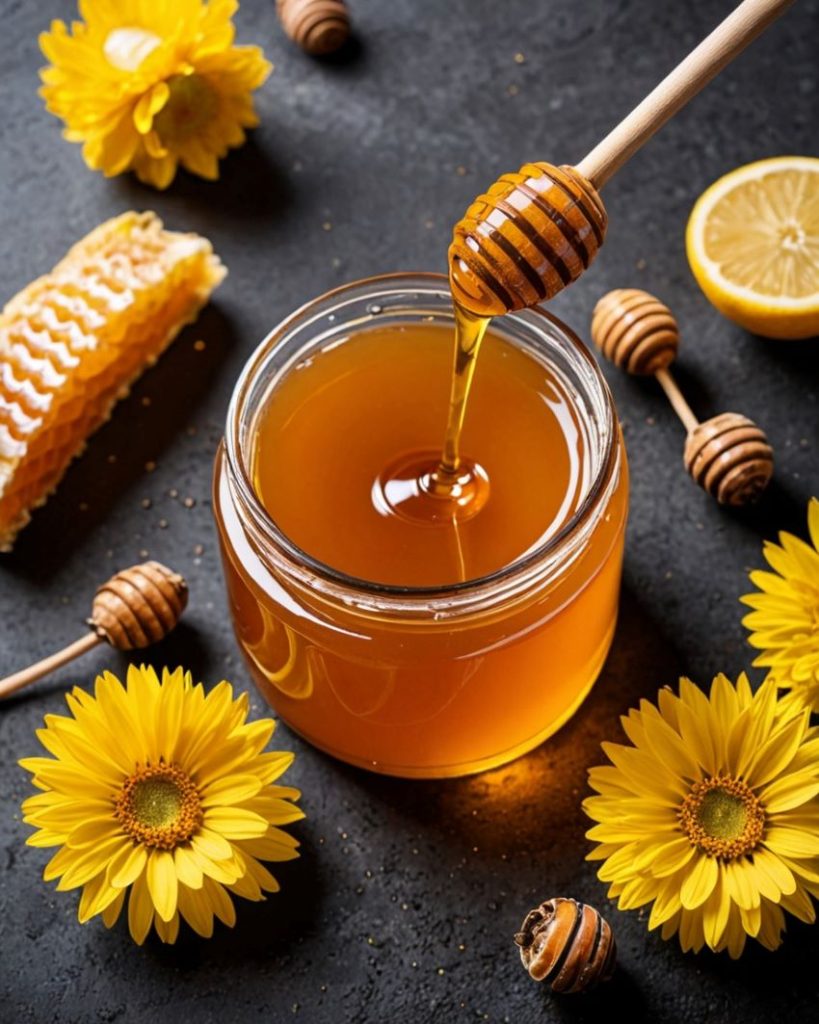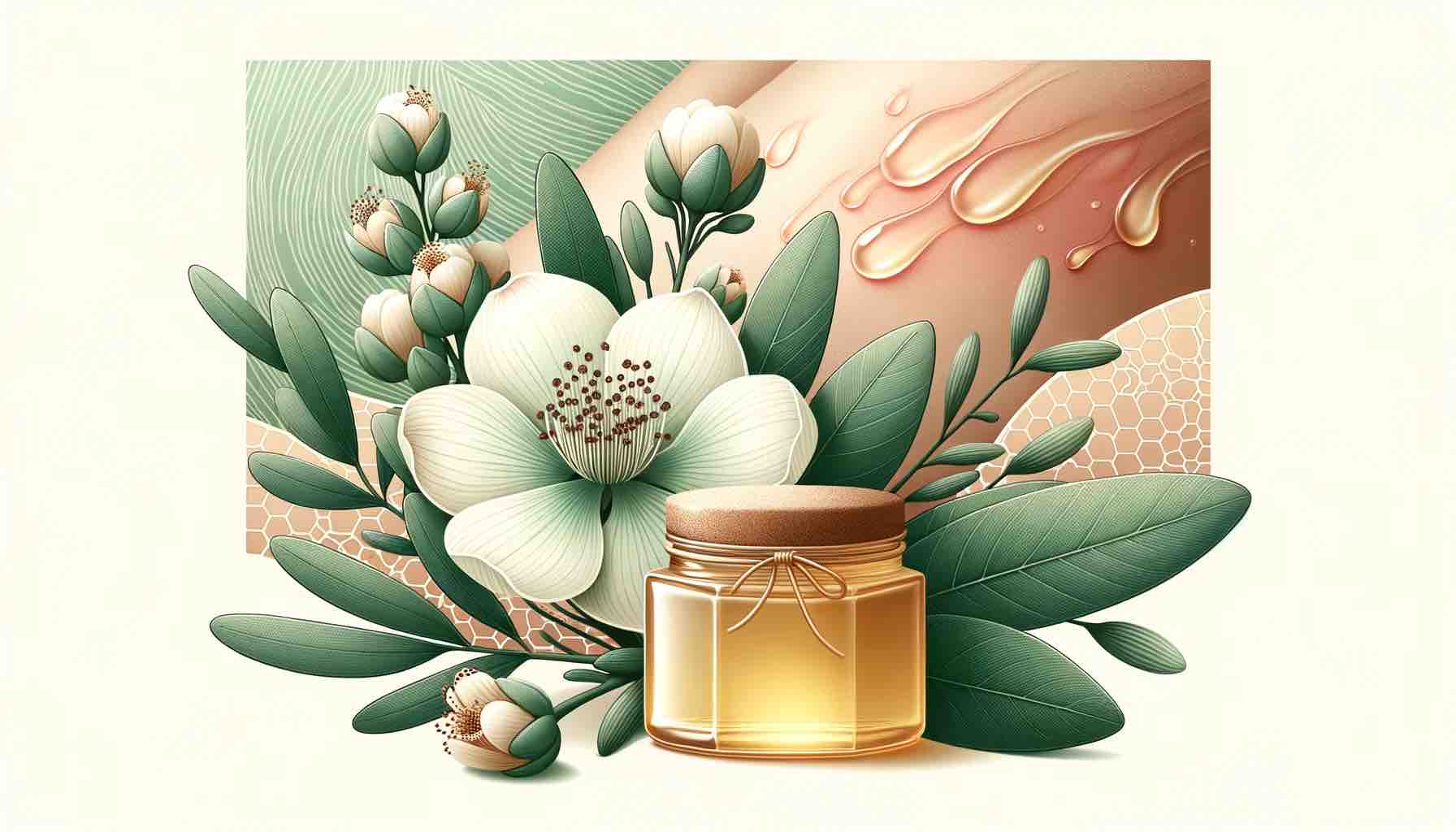
“The fruit of bees is desired by all, and is equally sweet to kings and beggars and it is not only pleasing but profitable and healthful; it sweetens their mouths, cures their wounds, and conveys remedies to inward ulcers.”
– Saint Ambrose
The above quote pretty much sums up the importance of honey in our lifestyle. It’s one of the many nature’s gift to mankind. It is a natural and a healthy substance that has been harvested by humans for over thousands of years to heal and provide natural source of energy. Across the globe our ancestors were well aware of its benefits. In India, honey is an important part of Siddha and Ayurveda – the ancient, traditional systems of medicine. In ancient Egypt, it was used in managing skin and eye diseases, and also as a natural bandage applied on wounds and burns.
In this post we will look at various health benefits of consuming honey regularly, how according to Ayurveda honey should be consumed and the kind of honey you should buy to derive maximum benefit from it.

Health Benefits of Honey
Honey is anti-microbial and antiseptic: Several clinical studies have demonstrated that application of honey to severely infected wounds rapidly clears infection from the wound and improves tissue healing. It has a synergistic effect when applied with antibiotics. Tissue repair is enhanced by the low pH of honey. The pH of honey is between 3.2 and 4.5. This acidity is low enough to inhibit the growth of most microorganisms.
It is anti-inflammatory: Suffering from pain and inflammation? Include honey in your lifestyle. It has the power to lower inflammation. Honey contains antioxidants like Vitamin C, flavonoids, and polyphenols which are highly anti-inflammatory. It helps repair damaged intestinal linings, and stimulates the growth of new tissues.
It is an energy food: Out of many vital uses of honey, one of the most important use is that, it is a brilliant energy booster. Honey contains 85% of sugar molecules, glucose and fructose. The remaining 15% is water, pollen and trace nutrients. Unlike white sugar which is 100% sugar with a GI of 65, honey has a GI of 30-50. This means honey will provide energy over a long period of time.
Helps in Digestion: Honey has a mild laxative properties which helps in giving relief from constipation. It is also a mild probiotic which is excellent for your gut. Regular consumption can help reduce bloating and gas problems.
Combat skin and scalp infections: Thanks to its anti-fungal and anti-inflammatory properties, honey can give you relief from dandruff, eczema, and psoriasis rashes. It can strike down candida overgrowth that most people today struggle with. It can curb infections like ringworms, athlete foot, itchy scalp and seborrheic dermatitis.
Why you should never cook it?
Honey is liquid gold but its effectiveness nullifies once you heat it, cook with it or add it to hot liquids. According to Ayurveda, honey when heated above 40 degree Celsius becomes toxic. Overtime it contributes to ill health. The reason behind this is when honey is cooked, it becomes like a glue and sticks to your digestive tract producing toxins and clogging body channels. In Ayurveda, this is called Ama, which is nothing but undigested matter that can’t be flushed out of your body because it is stuck to your digestive tract like a glue. This is considered as one of the most difficult forms to detoxify. Charaka, the ancient sage of Ayurveda wrote over 500 years ago that, “nothing is so troublesome as Ama caused by improper intake of honey.”
Even modern science confirms that, heating honey can damage its properties, deteriorates the quality by damaging all beneficial enzymes responsible for its numerous health benefits.

How you should consume honey?
- The best way to consume honey is as it is in its raw form. You can add honey to slightly warm to room temperature liquids but never to hot liquids. If you are used to having honey water in the morning, make sure the water is not hot.
- Do not bake or cook with honey. Find different alternatives to sweeten your dishes which are not harmful when cooked like maple syrup or jaggery.
- Honey should not be consumed when you are working in a hot environment. Honey has qualities of being ‘hot’ in nature. It is best avoided on a hot summer day.
- It should never be combined with hot, spicy foods and fermented beverages like whiskey, rum.
- Avoid honey baked goods, snacks or cereals
Caution: Do not give honey to kids below 1 year of age. It can lead to botulism.
How to identify good quality honey?
All the benefits of honey go to waste if the honey you bought is substandard or is highly processed. Do not buy heated or pasteurised honey. Honey contains live enzymes and antioxidants which become completely dead once honey is heated during processing leaving you with nothing but sugar.
Do not fall for organic ones too. It’s is the biggest scam of food industries. Most of the commercial honey available in the market are nothing but fructose or corn syrups which can create a havoc with your blood sugar if consumed daily. Look for artisanal honey with terms like raw, unprocessed, unfiltered or unheated on the label. Raw honey is never heated above hive temperature and is strained but not filtered. They bear quite a price difference to commercial honey but investment in health and quality products will take you a long way.
Hope this article helped you. Let me know in the comments if you want to know how you can incorporate honey in your lifestyle. Enjoy good health! 🙂










